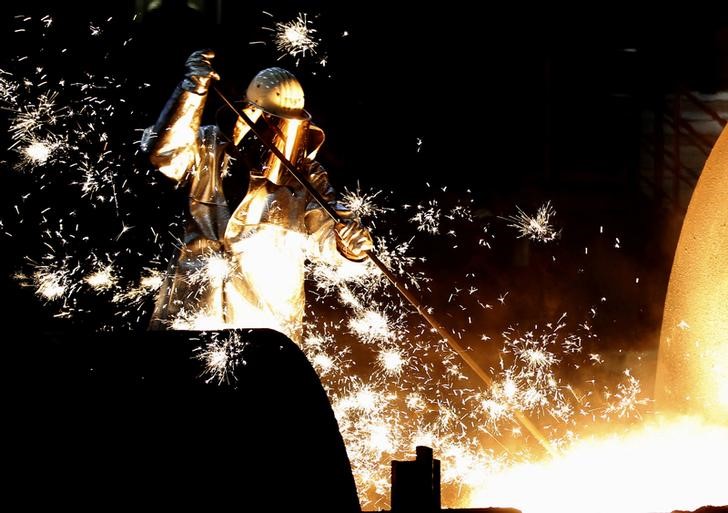BERLIN (Reuters) - Germany's export-dependent manufacturing sector saw the steepest decrease in output in almost 11 years in March, a survey showed on Wednesday, as the coronavirus pandemic forced plant closures in Europe's biggest economy.
IHS Markit's Purchasing Managers' Index (PMI) for manufacturing, which accounts for about a fifth of the German economy, fell to 45.4, lower than both a flash reading of 45.7 and February's mark of 48.0. A reading below 50 indicates a contraction in activity.
The sharpest drop in manufacturing output since April 2009, when the global financial crisis was raging, was led by a sharp decrease across the investment goods category, which includes carmakers and machine equipment.
"There's scope for the numbers to get even worse before they get better, as most containment measures and factory shutdowns happened either during or after the survey data were collected (between 12-24 March)," said Phil Smith, principal economist at IHS Markit.
German companies, including carmakers and car parts manufacturers, have been closing facilities and switching workers to shorter working hours to avoid mass layoffs.
The consumer goods sector was one bright spot in the survey. While it saw falls in output and new orders, it benefited from higher demand for food and cleaning products due to stockpiling unleashed by the crisis, as well as protective clothing.
